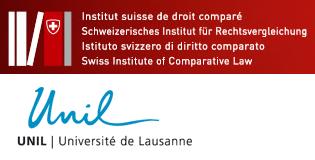Hess on Germany v. Italy
State Immunity, Violation of Human Rights and the Individual’s Right for Reparations – A Comment on the ICJ’s Judgment of February 2, 2012 (Germany v. Italy, Greece Intervening)
Burkhard Hess is a Professor of Law at the University of Heidelberg
In this blog, the pronouncement of the judgment of the ICJ in the case Germany v. Italy was announced, but no comment has been posted yet. I would like to start a discussion on this judgment and its implications for the development of international law, because this judgment seems a landmark decision to me. My following comments are part of a more comprehensive article (written in German) commenting the judgment which will be published in IPRax 3/2012.
1. The Background of the Decision
As the background of the ICJ’s judgment is well known to most of the readers of this blog it can be briefly summarised as follows: Since the 1990s, Germany has been sued by many victims of Nazi atrocities in European (and American) courts. The plaintiffs asserted that they had not been fully compensated for losses of the lives of their family members, for their personal injuries, for violations of their personal liberty and for losses of property through the reparation agreements after WW II. A major incentive triggering these lawsuits was the ambiguous wording of the Treaties on the Reunification of Germany (especially the so-called 2+4 Treaty) which stipulated to be “final regarding the legal effects of WW II”, but did not comment on the reparation issue. In the late 1990s, German companies were sued in American and German courts for reparations of forced (or more correctly: slave) labour during the war. Finally, these claims were settled by a governmental agreement establishing the Foundation “Remembrance, Responsibility and Future” which provided for compensation for many, but not all victims of Nazi atrocities. Especially those victims who were not compensated initiated additional lawsuits against Germany (and German corporations) in their respective home-states.
In 2000, the Supreme Greek Civil Court gave a judgment against Germany and ordered the compensation of damages (of several million Euros) for atrocities committed by the German Wehrmacht and SS soldiers in the Greek village of Distomo where almost the whole population was killed in 1944. The Greek Court denied Germany’s claim for sovereign immunity for two reasons: First the Court held that the crime committed by the German soldiers was considered a non-commercial tort in the forum state which was no longer covered by state immunity. Secondly, and more importantly, the Court opined that the claims were based on violations of jus cogens and, therefore, Germany was not entitled to immunity. However, two years later a Greek special court declared that this judgment was not to be enforced in Greece. In 2002, the plaintiffs challenged this case law in the ECHR, but without success. In 2004, the Italian Corte di Cassazione, in the Ferrini-decision gave judgment against Germany and denied the immunity for the same reasons: first because the crimes had been committed by the soldiers of the German Reich on Italian soil and secondly, because the atrocities were qualified as war crimes and crimes against humanity belonging to jus cogens. According to the Ferrini-decision, jus cogens overrules state immunity which cannot bar the victims’ civil action for damages. In 2008, the Corte di Cassazione rendered two additional judgments against Germany which confirmed that Italian courts had jurisdiction over Germany in compensation cases for war damages. Since 2005, the Greek claimants sought the enforcement of the Distomo decision in Italy and, finally, seized the Villa Vigoni, a property of the German State near the Lac Como which is used for cultural exchanges.
In 2008, Germany initiated proceedings in the ECJ under the European Convention on the Peaceful Settlement of Disputes of 1957 which confers the ICJ the jurisdiction for disputes among the Contracting parties on the interpretation of international law. Italy counterclaimed for war damages, but the ICJ rejected this counterclaim in 2010 as inadmissible because the European Convention of 1957 did not confer jurisdiction on disputes which arose before its entry into force. Finally, Greece intervened in the proceedings in order to “protect” the judgments of its courts and the ICJ permitted this intervention.
2. The Arguments of the ICJ
On February 2, 2012, the ICJ found by a majority of twelve to three judges that Germany’s right to sovereign immunity had been infringed by the decisions of the Italian courts and by a majority of fourteen to one vote that the enforcement measures against the Villa Vigoni equally infringed Germany’s sovereign immunity from enforcement measures. The majority opinion was written by President Owada; only the dissent of Cancado Trindade asserted that international law generally privileges human rights claims. Accordingly, the fundamental issue before the court was the relationship between jus cogens and state immunity. The importance of the decision is underlined by its clear outcome: although recent decisions of the ECtHR on the relationship of human rights protection to state immunity (ECtHR, Al Adsani v. United Kingdom, ECHR-Reports 2001-XI, p. 101, Kalegoropoulou v. Germany and Greece, ECHR Reports 2002 X-p.417), had been given by very small majorities (of only one vote), the majority of the ICJ is clear and unambiguous. The majority opinion on jurisdictional immunity unfolds in three steps: first, it enounces the importance of state immunity as a principle of the international legal order and derives from this premise thatItaly must demonstrate that modern customary law permits a limitation of state immunity in the situation under consideration. Secondly, the Court scrutinises whether there is an exception from immunity in the case of tortuous conduct committed by foreign troops in the forum state. Thirdly, the Court addresses the issue of whether the violation of a peremptory norm (jus cogens) demands an exception from state immunity. The argument of the majority is based on a positivist approach to customary international law which can be summarised as follows:




